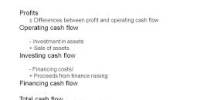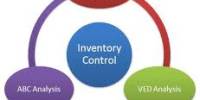Managerial Accounting refers to the process of making essential data available to company managers who directly responsible for a firm’s operations. Managerial Accounting is also known as ‘cost accounting’, which enables decision makers to create value for their organization through effective use of resources, efficient actions and managing people.
=> Managerial Accounting refers to the process of making essential data available to company managers who directly responsible for a firm’s operations. Managerial Accounting is also known as ‘cost accounting’, which enables decision makers to create value for their organization through effective use of resources, efficient actions and managing people.
=> Management accounting or managerial accounting is concerned with the provisions and use of accounting information to managers within organizations, to provide them with the basis to make informed business decisions that will allow them to be better equipped in their management and control functions.
In contrast to financial accountancy information, management accounting information is:
- designed and intended for use by managers within the organization, instead of being intended for use by shareholders, creditors, and public regulators;
- usually confidential and used by management, instead of publicly reported;
- forward-looking, instead of historical;
- Computed by reference to the needs of managers, often using management information systems, instead of by reference to general financial accounting standards.
=> Managerial accounting is concerned with providing information to managers- that is, to those who are inside an organization and who direct and control its operations. Managerial accounting can be contrasted with financial accounting, which is concerned with providing information to stockholders, creditors and others who are outside an organization (Garrison and Noreen, 1999).
Managerial accounting information includes:
- Information on the costs of an organization’s products and services.
For Example, managers can use product costs to guide the setting of selling prices. In addition, these product costs are used for inventory valuation and income determination. - Budgets.
A budget is a quantitave expression of a plan. - Performance reports:
These reports often consist of comparisons of budgets with actual results. The deviations of actual results from budget are called variances. - Other information which assist managers in their planning and control activities.
Examples are information on revenues of an organization’s products and services, sales back logs, unit quantities and demands on capacity resources.
















